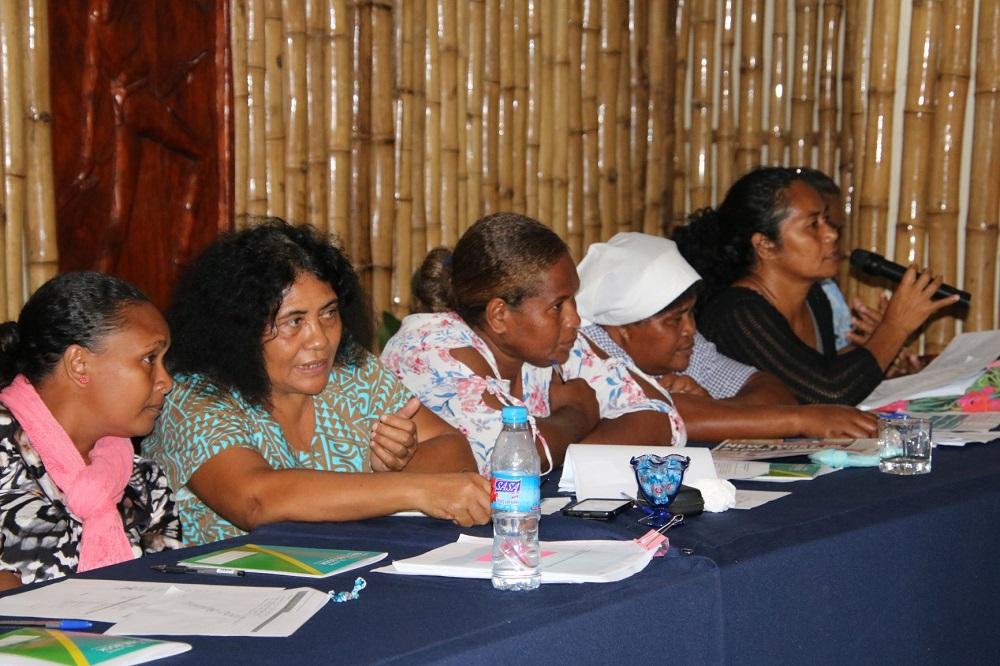Using regional forums to advance the women, peace and security agenda
Posted By Genevieve Feely on June 22, 2020 @ 12:45

This article is part of ASPI’s 2020 series on women, peace and security.
The advancement of women’s rights and gender equality through the United Nations is under threat [1]. Last year, the 63rd session [2] of the Commission on the Status of Women became highly charged and previously agreed language on sexual and reproductive rights was removed [3] from Security Council resolution 2467 after the US threatened to veto it.
So, while continued advocacy in UN forums is crucial for both holding the line and advancing women’s rights, it’s time to look to other options such as regional forums as a way of truly embedding the women, peace and security agenda into the global peace and security architecture.
Outside of the UN, a number of regional and sub-regional organisations are actively incorporating WPS principles into their work. Creative and innovative engagement through these forums can offer complementary paths for countries and civil society seeking to advance the WPS agenda globally.
We’ve already seen 12 organisations adopt [4] regional action plans on WPS. These sit alongside national action plans, which are currently the key tool for implementing the agenda. In his latest progress report on implementation, UN Secretary-General Antonio Guterres encouraged the development of regional and sub-regional action plans. He also noted the development of local action plans, which offer another layer of complementary activity for the WPS agenda.
The development of regional action plans recognises that this issue is all-encompassing and doesn’t end at any one country’s borders. In addition, a regional action plan allows a group of countries to speak with one voice, which can be a valuable tool for highlighting the WPS agenda’s value as well as saving [5] precious resources in developing and implementing these plans.
Regional action plans can be tailored for specific contexts, adding to the broader institutionalisation of the WPS agenda across our multi-faceted peace and security architecture. An interesting model is the North Atlantic Treaty Organization. Given NATO’s dual purpose as both a political and a military alliance, WPS is a natural fit with the organisation’s own agenda.
NATO’s approach is operational, which allows for greater institutionalisation of the WPS agenda in the organisation’s main activities of military exercises and operations. NATO has placed an increasing emphasis on the implementation of WPS throughout its frameworks. Recent examples includes its adoption [6] of an inaugural policy on preventing and responding to sexual exploitation and abuse and its appointment [7] of a special representative on women, peace and security.
By focusing on operational aspects of implementing the WPS agenda and embedding them internally in a visible way, NATO has demonstrated leadership, giving it a useful platform for further advocacy. Incorporating the agenda in its day-to-day operations—as opposed to spouting simple rhetoric—is an excellent approach to tailoring the agenda to work effectively in particular contexts.
Closer to home, Australia is in the process of developing its second national action plan. Alongside this, there are opportunities for Australia to engage on WPS with regional political alliances like the Association of Southeast Asian Nations. In 2017, ASEAN adopted its first statement [8] on promoting WPS in the organisation and, in 2019, reaffirmed that commitment in a joint statement [9] issued at the ASEAN Regional Forum, which included stronger and specific language on advancing the agenda in the region.
Australia and other external partners were included in the 2019 process, which offered an excellent opportunity to collaborate and help shape the regional consensus. Australia has also contributed through other mechanisms such as the Australia–ASEAN dialogue [10] on WPS in 2018. The background paper released [11] for the dialogue lays out some excellent analysis on the value of regional engagement.
Similarly, Australia should continue to work with the countries of the South Pacific to build consensus and amplify the region’s voice on WPS. Grassroots advocacy and civil society are strong [12] forces among the island nations and form an important part of their regional approach, so this should be taken into account while engaging with them.
Building and consolidating the WPS agenda throughout our region is in Australia’s interests. The strong sense of regionalism around us makes these forums valuable avenues. Australia’s work with ASEAN on this issue so far has been promising and should be maintained and strengthened, along with our engagement in other regional groupings, such as the Pacific Islands Forum.
As we move past the 20th anniversary of the WPS agenda, there’s a need pursue innovative, complementary paths for embedding its principles in the international peace and security architecture. Regional organisations are well placed to continue pressing the WPS agenda forward.
Article printed from The Strategist: https://aspistrategist.ru
URL to article: /using-regional-forums-to-advance-the-women-peace-and-security-agenda/
URLs in this post:
[1] under threat: /gender-equality-and-international-security-two-steps-forward-one-step-back/
[2] session: https://www.passblue.com/2019/03/24/the-us-goes-bonkers-at-the-un-womens-conference/
[3] removed: https://www.ipinst.org/wp-content/uploads/2019/09/1909_Global-Pushback.pdf
[4] adopt: http://www.peacewomen.org/member-states
[5] saving: https://www.peacewomen.org/assets/file/pacific_region_regional_action_plan_2012-2015.pdf
[6] adoption: https://www.nato.int/cps/en/natohq/news_173057.htm?selectedLocale=en
[7] appointment: https://www.nato.int/cps/en/natohq/news_150445.htm
[8] first statement: https://asean.org/wp-content/uploads/2017/11/8.-ADOPTION_Joint-Statement-on-Promoting-Women-Peace-and-Security-in-ASEANACWC-Endorsed_rev2.pdf
[9] joint statement: http://aseanregionalforum.asean.org/wp-content/uploads/2019/08/ARF-WPS-Statement_FINAL-00000002.pdf
[10] dialogue: https://www.acmc.gov.au/resources/publications/asean-australian-women-peace-and-security-dialogue
[11] released: https://www.acmc.gov.au/sites/default/files/2018-11/MONASH_Policy_Brief_ASEAN_ART2.pdf
[12] strong: /regional-security-measures-include-hearing-diverse-womens-voices/
Click here to print.